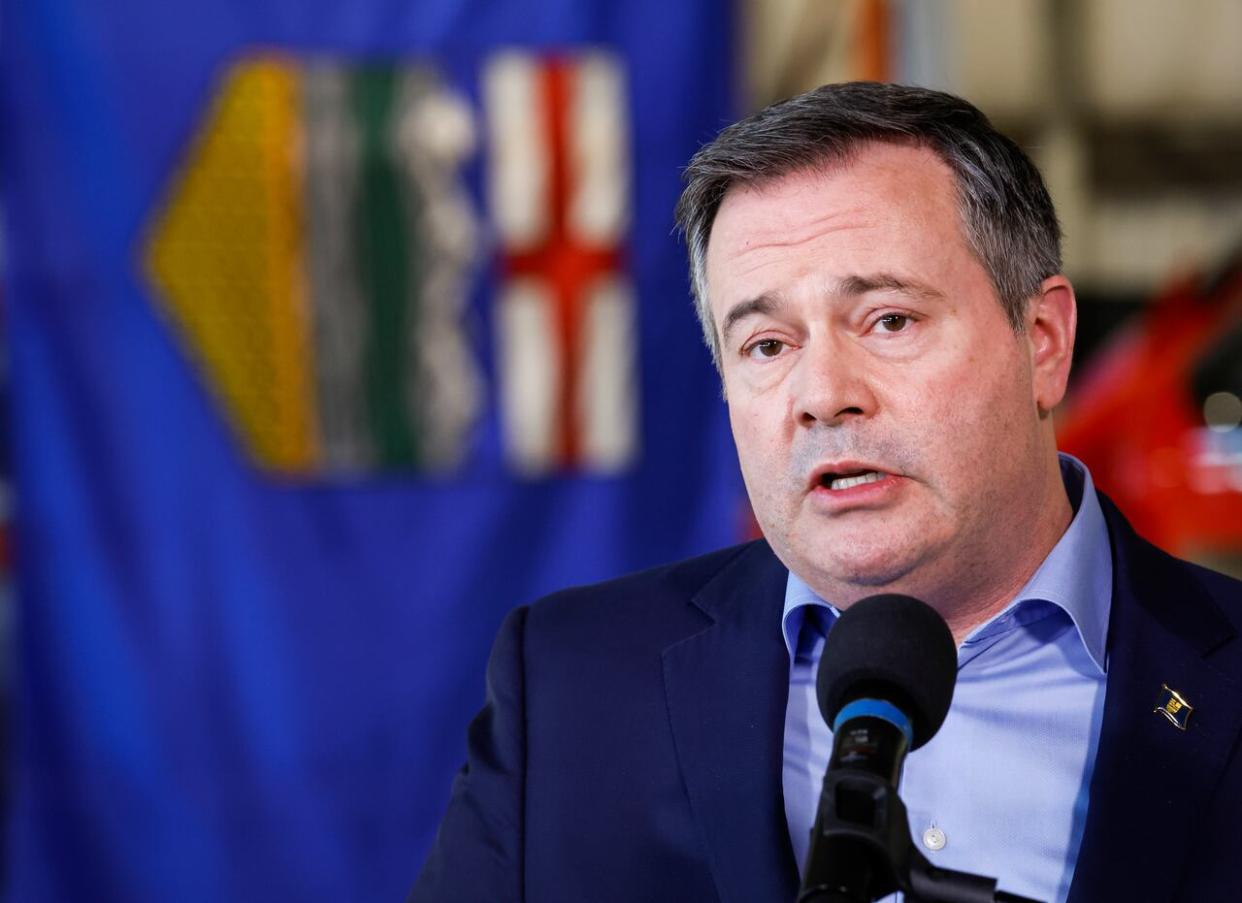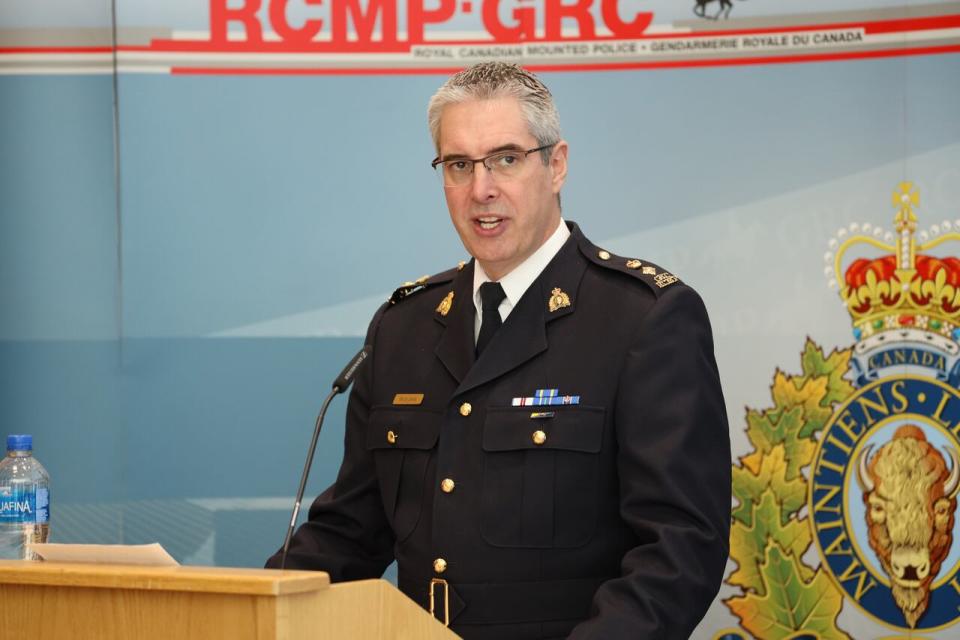No charges as RCMP conclude probe into Alberta's 2017 UCP leadership race

No charges will be laid following a long and complex Alberta RCMP investigation into allegations of voter fraud and identity theft in the 2017 United Conservative Party leadership race won by Jason Kenney.
RCMP announced the conclusion of their investigation at a news conference in Edmonton Friday following a closed-door technical briefing with reporters.
Since 2019, RCMP had been investigating allegations of fraud and identity theft in the contest that Kenney won in October 2017 before he became Alberta's premier.
RCMP characterized the investigation Friday as high-profile and extremely complex.
The investigation looked into two allegations: that candidate Jeff Callaway entered the leadership contest solely to attack another candidate, always with the intention of pulling out and endorsing a different candidate before the vote, and that there were instances of identity fraud in the voting process.
Kenney's leadership win was tainted by allegations his campaign ran Callaway as a so-called "kamikaze" candidate to attack and undermine Kenney's main rival, former Wildrose leader Brian Jean. Kenney was interviewed in February 2022 by the RCMP about the allegations.
Callaway dropped out of the race before the vote and endorsed Kenney. Both men have denied their campaigns colluded to undermine Jean.
The investigation did not uncover evidence to establish that Callaway or any other person committed a criminal offence, RCMP said Friday.
Voter fraud allegations
The 2017 UCP leadership race also faced allegations of attempted voter fraud using mail-in ballots.
The allegations were that emails were created in order to receive PINs and vote on peoples' behalf without their consent.
RCMP investigators examined the voter database used by the UCP and identified a list of "suspicious votes," police said Friday.
Police said the number of potential votes at issue, which after investigation was less than 200, was not enough to sway the results of the leadership race.
Kenney won with 36,625 votes (61 per cent), Jean received 18,336 votes (31 per cent), followed by Doug Schweitzer with 4,273 votes (seven per cent).
The investigation did not find evidence that any leadership candidate encouraged their volunteers to engage in identity fraud, RCMP said.
In a statement posted to social media on Friday, Kenney said he was pleased that the investigation found what he has said all all along — that neither he nor his campaign did anything wrong.
He said he directed the party and his former leadership team to co-operate with the RCMP investigation. He said the "baseless" allegations were made by two people he had prevented from running as UCP candidates in the 2019 provincial election.
"Today's outcome is a total vindication of my 2017 leadership campaign, and the UCP's administration of that election," Kenney said in his statement.
Brian Jean, now Alberta's minister of energy and minerals, said he was glad there was finally closure on the file.
"The victim in this matter was our party, which was put together by so many people of good will who sacrificed lots to bring together two parties and two organizations into one," Jean wrote, adding the UCP tightened up the rules for the 2022 leadership race, won by Premier Danielle Smith.
"Integrity in political processes matter, which is why I am proud of how our party ran the last leadership race."
CBC News has requested comment from former leadership candidate and cabinet minister Doug Schweitzer, who left government in 2022.
During the course of the investigation, police conducted interviews with the more than 1,200 people and examined their UCP membership and registration forms.
"While RCMP determined that there suspected instances of potential identity fraud, there was insufficient evidence to charge any suspect and there was no evidence that any leadership candidate orchestrated these "relatively rare instances," RCMP said in Friday's news release.
Nothing in the investigation suggested that the UCP failed to take reasonable steps to manage their internal process, RCMP Supt. Rick Jané said during Friday's news conference.

Alberta RCMP Supt. Rick Jané speaks at Friday's news conference. (Kory Siegers/CBC)
"This wasn't a widespread situation," he said. "There was no hacking like technological hacking. There was no use of foreign interference.
"This was a situation where it appears that it is possible that in some cases somebody obtained personal information that allowed them to register and receive a PIN to vote and then cast that vote.
"And those cases, if they could be proven in court, would still be a very small, small percentage of the overall vote."
Jané said the years-long investigation was thorough. It's unlikely the investigation will be reopened, he said.
RCMP said the case involved more than 65 investigators, 1,200 interviews with voters, 560 other interviews, 12 out-of-province trips by 22 investigators, and $460,877 paid in overtime and travel expenses.

 Yahoo News
Yahoo News 
